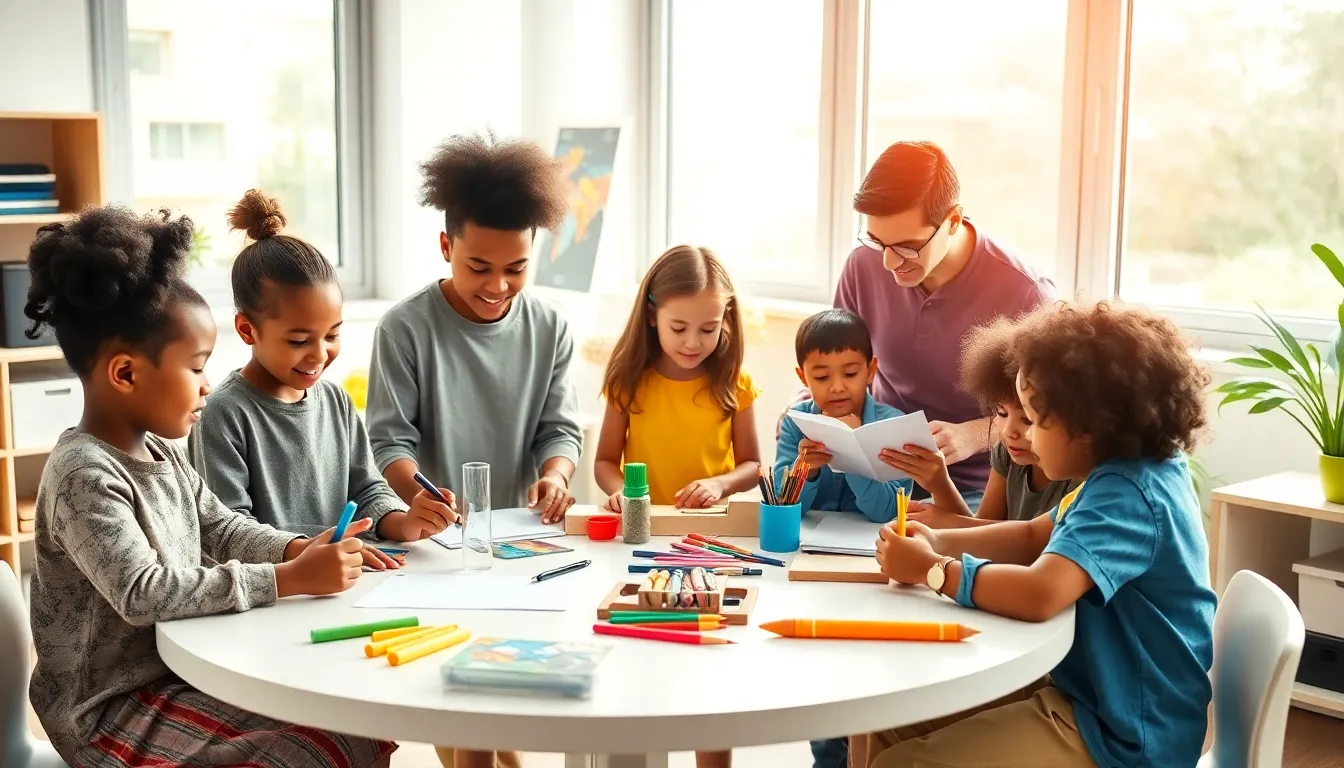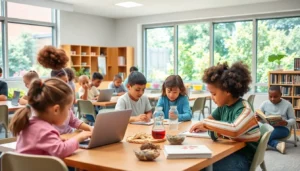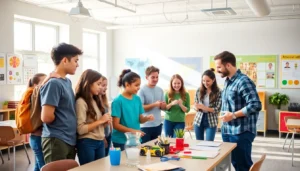Table of Contents
ToggleIn a world where sitting in a classroom for eight hours sounds about as appealing as a root canal, alternative education methods are stepping up like a cool breeze on a sweltering day. These innovative approaches to learning cater to diverse needs, preferences, and talents, transforming education from a one-size-fits-all model into a richer, more tailored experience. Curious about what these methods entail? Buckle up as we jump into the vibrant world of alternative education.
What Is Alternative Education?

Alternative education refers to any educational practices that diverge from traditional schooling systems. It embraces a variety of teaching styles, curricula, and education settings that aim to meet the needs of students who may not thrive in conventional schools. Think of it as the trendy, alternative music festival of education, where different approaches come together to create a harmonious learning environment tailored for individual needs.
These methods can range from Montessori schools, which focus on self-directed activity and hands-on learning, to homeschooling, where parents customize curricula for their children. While traditional education often emphasizes standardized testing and uniformity, alternative education celebrates diversity and creativity, paving paths for students to explore their unique interests and strengths.
Types of Alternative Education Methods
The landscape of alternative education is colorful and varied, comprising numerous types that cater to different learner styles. Here’s a closer look at some of the most popular alternative education methods:
Montessori Education
In Montessori schools, children learn through exploration and hands-on activities, fostering independence and a love for learning. Instead of following a rigid curriculum, students choose their learning paths.
Waldorf Education
Waldorf education emphasizes imagination and creativity, integrating arts and academics. It focuses on nurturing the child’s spirit and intellect, with storytelling, music, and movement at the core of its pedagogy.
Homeschooling
Homeschooling allows parents or guardians to take charge of their child’s education, tailoring lessons and learning materials to fit their child’s unique needs. This flexibility often leads to deep, meaningful engagement and academic success.
Unschooling
Unschooling is based on the belief that children learn best through life experiences. Instead of following a specific curriculum, unschoolers pursue their own interests, fostering a natural love for learning.
Project-Based Learning
This method involves students engaging in real-world projects that encourage collaboration and critical thinking. It connects classroom learning to practical scenarios, making education feel relevant and engaging.
This diversity in approaches isn’t just about variety: it caters to the changing needs of society and the evolving understanding of how people learn best.
Benefits of Alternative Education Methods
Alternative education comes with a host of benefits that can significantly enhance the learning experience. Some of the standout advantages include:
Personalization
Unlike traditional education, alternative methods often allow for individualized learning experiences. Students can advance at their own pace, diving deeper into subjects they’re passionate about.
Fostered Creativity
Many alternative education methods prioritize creativity and critical thinking over rote memorization. This approach encourages students to think outside the box, often leading to innovative solutions and fresh perspectives.
Increased Engagement
Students in alternative settings frequently report heightened levels of engagement. With learning tailored to their interests, they are more likely to participate actively in their education.
Stronger Relationships
Alternative education often promotes smaller class sizes and a community-focused environment, helping students develop stronger interpersonal relationships with their peers and educators.
Lifelong Learning
By nurturing a love for learning, alternative education methods often instill a sense of curiosity that transcends formal education, encouraging lifelong learning and inquiry.
Challenges and Considerations
While alternative education offers numerous benefits, it is not without its challenges. Here are some important considerations:
Accessibility
Not all families have equal access to alternative education options. Factors such as geographic location, finances, and availability of programs can limit choices for many parents and students.
Socialization Concerns
One of the biggest concerns some parents have about alternative education, particularly homeschooling or unschooling, is socialization. Ensuring children have opportunities to interact and collaborate with peers outside of formal settings is crucial.
Regulatory Hurdles
In some areas, alternative education programs may face stringent regulations or lack appropriate accreditation, which can complicate enrollment and acceptance in higher education institutions.
Resource Availability
Quality resources and experienced educators can sometimes be harder to come by in alternative settings. Parents opting for homeschooling, for instance, may need to invest significant time and effort into sourcing educational materials and support.
Case Studies of Successful Alternative Education Programs
To illustrate the impact of alternative education, let’s highlight a few successful programs:
The Montessori School
A renowned Montessori program in San Francisco has gained fame for its hands-on learning approach that results in high levels of student engagement. The school encourages independence, leading to remarkable outcomes in student academic and social development.
Sudbury Valley School
Located in Massachusetts, Sudbury Valley School operates on a democratic model where students participate in decision-making processes about their education. Alumni often credit the school with developing their critical thinking and enthusiasm for lifelong learning.
Forest Schools
These innovative programs emphasize outdoor learning, where children are encouraged to explore nature, build resilience, and develop problem-solving skills. The success stories from these schools showcase the power of nature in education, bringing curriculum standards into real-world contexts.
Future of Alternative Education
As society continues to evolve, so too will alternative education methods. The future looks bright with advancements in technology allowing for even more personalized and engaging learning environments. Online platforms and digital resources are becoming increasingly prevalent, making alternative education more accessible to all.
Besides, an emphasis on social-emotional learning and holistic education will shape the development of alternative education methods, recognizing that the well-being of the student is as important as academic success. Expect to see continued innovation that blends technology with personalized methodologies, addressing the unique challenges faced by learners in today’s world.




